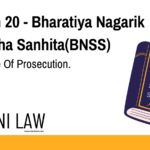Code
Police officers superior in rank to an officer in charge of a police station may exercise the same powers, throughout the local area to which they are appointed, as may be exercised by such officer within the limits of his station.
Explanation:
This section of the Bharatiya Nagarik Suraksha Sanhita (BNSS) grants superior police officers, such as Inspectors, Deputy Superintendents of Police (DSPs), or Superintendents of Police (SPs), the authority to exercise the same powers as the officer in charge of a police station, but not limited to the boundaries of that station. These powers extend to the entire local area they are assigned to.
Illustration:
- An Inspector is stationed at a police station in a city. He/she can exercise the power to arrest an individual for a crime committed within his jurisdiction. However, if the crime occurred outside the limits of his station, but within the broader city area he’s assigned to, he can still exercise the same arrest power due to this code.
Common Questions and Answers:
Q: What powers are we talking about?
A: These include powers like arrest, investigation, and the authority to conduct searches.
Q: Does this mean a superior officer can replace the station officer in every situation?
A: No. While they can exercise the same powers, the station officer still retains responsibility for their own station. He/she may need to be consulted or involved in specific cases.







